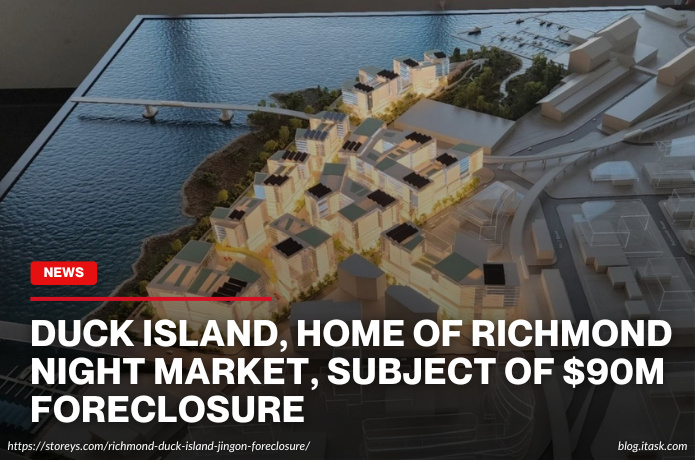Duck Island, Home Of Richmond Night Market, Subject Of $90M Foreclosure
Duck Island, Home Of Richmond Night Market, Subject Of $90M Foreclosure

Duck Island in Richmond, British Columbia, known for hosting the popular Richmond Night Market, is at the center of a $90 million foreclosure. Jingon International Development Group, which owns the site, envisioned transforming the area into a vibrant commercial hub. However, mounting financial challenges have derailed these plans.
The property served as collateral for an $85 million loan secured in 2020. Loan defaults began after Jingon failed to meet repayment deadlines in 2023. With interest and penalties, the debt has now surpassed $90 million.
Jingon’s rezoning applications added to the complications. The group sought to change the island’s zoning from industrial to commercial and residential uses, breaching conditions of the loan agreement. This led to strained relations with lenders and accelerated foreclosure proceedings.
The Richmond Night Market, a seasonal cultural attraction, remains unaffected. Its operations are protected by a lease agreement and are not involved in the financial disputes surrounding the property.
The Supreme Court has granted sale control to a secondary creditor, opening the door for potential buyers. However, challenges remain, including zoning conflicts and court oversight of the sale process.
The foreclosure underscores the risks tied to large-scale property investments, where mismanagement and financial strain can derail ambitious redevelopment projects. This case highlights the complexities involved in reshaping urban landscapes.
